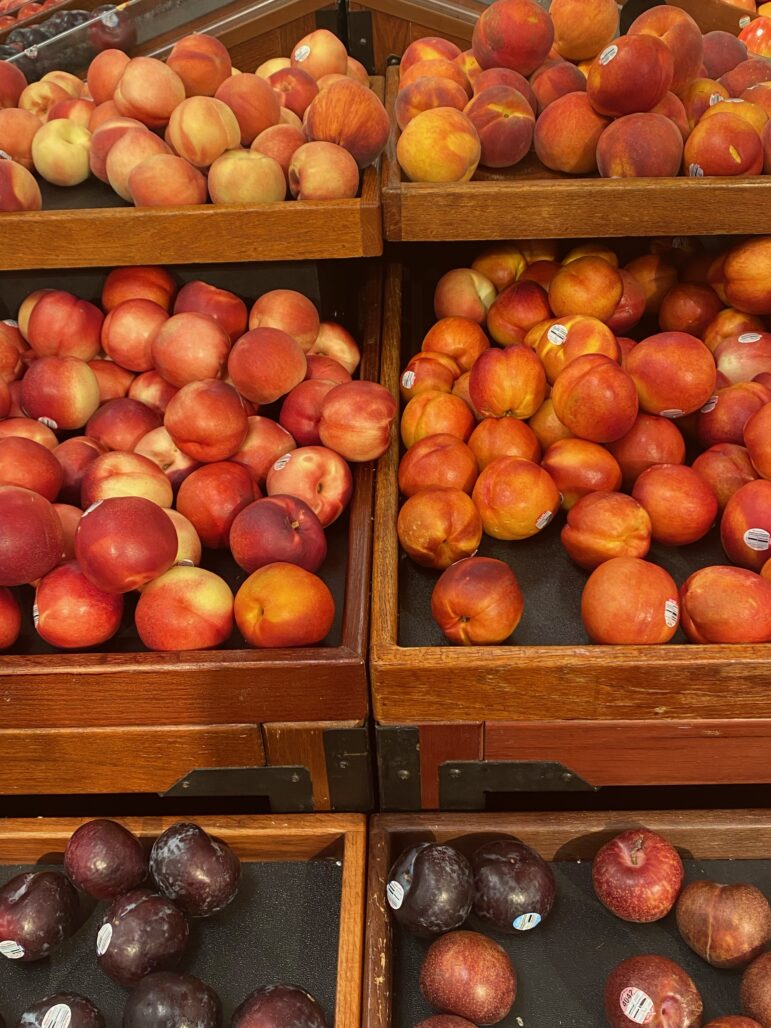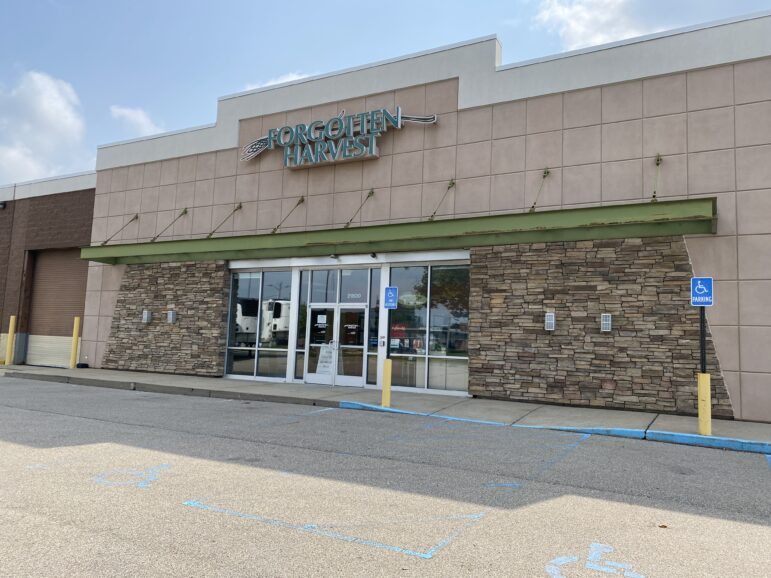
Catherine Hines has had a front row seat to Forgotten Harvest’s impact on her community.
“Families on my block really took a hard hit once the pandemic started,” said Hines, 28, from Detroit. “I knew Forgotten Harvest worked with packaging food to send off to families in need so I volunteered as much as I could to ensure that those who needed food would have access to it.”
“Food Banks are the primary entities that collect food and distribute to the appropriate organizations that are responsible for directly distributing food to the people such as a food pantry. Often when food is donated, it may not be the most nutritious so Food Banks will also provide nutritious and low cost food options for the public facing agencies” said Phillip Seaborn, Assistant Director for Undergraduate Diversity at Michigan State University.
By Seaborn working at the college of Agriculture and Natural Resources, he said why he believes that food banks and food pantries can help stop poverty, but more importantly how they can be a tool to help those who may already be improvised sustain long enough to potentially pull themselves out of the situation.
“Food Banks and pantries are critical assets in helping those who need it receive access to one of the most critical needs, food. If you are trying to provide for yourself or your family and you’re barely getting by, food pantries can help lighten the burden because at the very least, you don’t have to worry about food,” said Seaborn.
Seaborn said, “While I believe Food Banks and Pantries can “help” stop and reverse poverty, they are only one piece of the puzzle and many other factors must considered when looking at poverty as a whole.”
According to an article with Civil Eats, “each person is given 30 pounds of food including produce and milk,” said Anna Clark with Planet Detroit. She said how the U.S Department of Agriculture estimates that between 30 and 40 percent of the nation’s food supply goes to waste. Due to the pandemic that number tripled in the U.S with households with children according to a report from Northwestern University’s Institute for Policy Research.
Theodore McGee said his family struggled financially once his parents were laid off from work. This led to them struggling to be able to afford healthy groceries.
“We normally eat extremely healthy in my household,” said McGee, 18, from Detroit. “Healthier foods are more expensive and by my parents getting laid off, we can’t really afford to eat the way we did and that’s really unfortunate. We’ve been trying to find solutions that could help us since we’ve used food banks before.”
According to the Detroit Food Policy Council, 48% of Detroit households are food insecure and another 40% relies on food stamps.
One solution for Detroiters who are struggling has been to reach out to food banks and food pantries.
Detroit Public School’s set up a food distribution at 57 locations which provides 18,000 meals to children each week. Due to the pandemic increased funding provided food for not only families and students, but Detroiters who are in need according to Planet Detroit.

“Forgotten Harvest serves as the middle man for food banks and food pantries,” said Forgotten Harvest marketing and communications associate Christopher Ivey, from Detroit. “We work to package and deliver food to families in need.”
“We not only have farms that we get the food from, but we rescue and collect food that would go to waste to help feed the hungry,” said Ivey.
Cameron Clarke, a team member at Detroit Manufacturing Systems, said his job provides volunteer opportunities for their employees that directly helps the city of Detroit. Because getting the food to people in need is its own issue.
“We volunteer at Gleaners food bank every other month to help with food insecurity in the city,” said Clarke, 19, from Detroit. We want to help families and people who may be homeless that are struggling due to food insecurity. It’s mainly the lack of access to food due to the funds the city receives.”
“Gleaners is a food bank that strives to provide food for neighborhoods in need through shelter, volunteer services, food pantries, and other distributors,” according to Stacy Averill, vice president of community giving and public relations with Gleaners Community Food Bank.

Averill said, “Gleaners, for example, provides food to more than 660 partner schools, soup kitchens, food pantries, shelters, and other agencies across the region, and supplements the efforts of those partners by offering direct service drive-up grocery and food box distributions. In Gleaners fiscal year 2020, we distributed nearly 64 million pounds of food to neighbors in need.”
Ivey and Averill both said food banks are such a necessity within the city of Detroit because the organization helps to address families that are struggling and in vital need for food and other related services that they provide.
Ivey said the city of Detroit has been benefiting from food pantries and food banks. coincide in boxing and disturbing and goods to millions of families within the community. He said you can’t have one without the other.
“We really package all of the goods we get from the food banks and give to those who reside in the area,” said Ivey. “At the end of the day we share the same common goal which is to provide to those in need in the city of Detroit and try to make the community a better place one day at a time.”
Averill said the central role in what Gleaners provides in terms of food insecurity within the city and how it is helping the community.
“Gleaners Community Food Bank’s role in addressing poverty is focused on working toward food security in the communities we serve,” Averill said. Food insecurity is a complex problem because people who are facing hunger are also affected by a host of other challenges, including housing, transportation, health care and employment.”
“Many lack the resources to meet their basic needs and these challenges compound the problem for families, seniors and other vulnerable members of our communities,” Averill said. Taking hunger off the table empowers families and individuals to address the other challenges in their lives and contributes to greater long-term health and achievement when nutritious food is regularly available.”